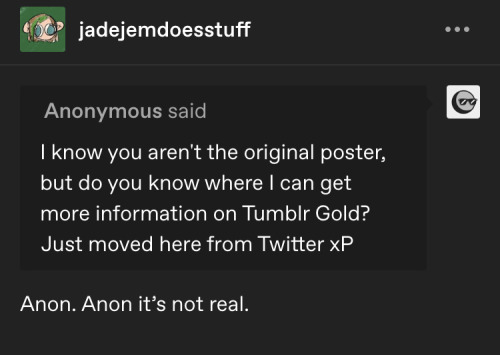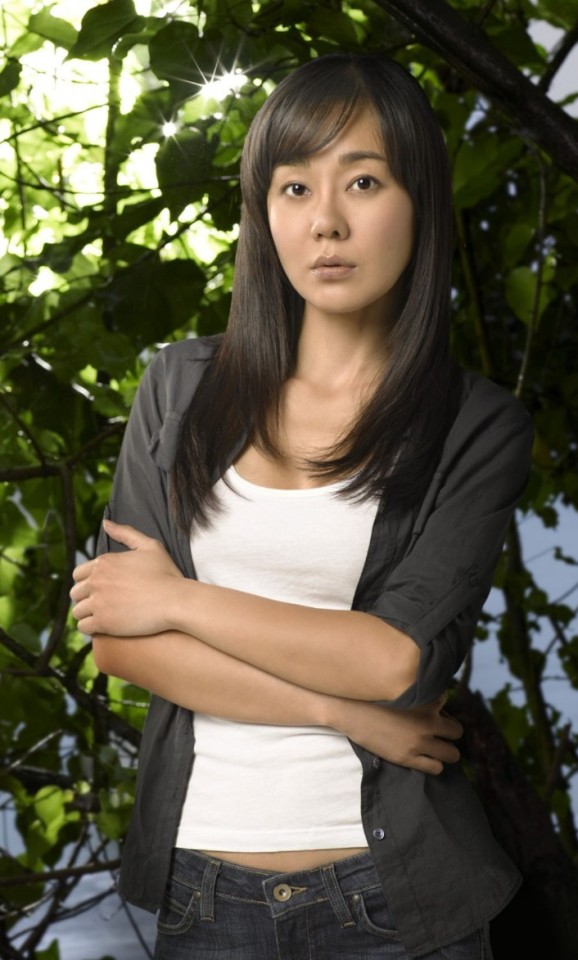WIP That Im Vv Proud Of Atm
WIP that im vv proud of atm

admittedly, i didn’t actually draw, i outlined the picture bUTT— the coloring was all my own so..
reference below

More Posts from Sheepishgoat and Others
wip (naenae) + a startled al :^)


might need to bake this take in the oven but I think miyazaki directed exactly one unambiguously progressive film & its ponyo
idk why people photoshopped the crying cat meme on this pic when the unedited version is so powerful




Lost (2004) | 1.04 "Walkabout"
Sayid looks at photographs from home.









I had an interesting night last night


Torbek! :DDD Some rough doodles I may clean up later, but I had fun.
People just aren't ready for her and her power. Sure, Jack is a surgeon, Sayid was a literal torturer. Yet, no one is ever ready for the motherquake measuring 9.9 on the cunter scale that occurs every time she speaks her mind:

MY HUSBAND CAME BACK FROM WAR (LOST IS NOW ON NETFLIX AND CAN BE VIEWED BY A LARGER AUDIENCE)
I watched “cinnamon roll” bloom, wither, and pass away, and I watched “tol” and “smol” bloom, wither, and pass away, and if it please God so too shall I see the demise of “blorbo.”
Thinking about Lilo & Stitch makes me really appreciate certain things about the original + the series. Almost every single named [human] character in the movie isn’t white: the only exception being Mertle, y’know, the bratty little girl we’re not supposed to like.






Besides all of the racial representation, Lilo herself is very much a neurodivergent icon, and her portrayal as the protagonist is amazing considering how characters like her are typically either sidelined or depicted in ways to make them less sympathetic/human (modern media does at least a slightly better job at adressing that kind of thing tho).

So all of that is great, but to anyone that hasn’t seen Lilo & Stitch: The Series, it also does some extremely refreshing stuff.
Pleakley gets tons of validation to dress in drag, everyone always referring to Pleakley as “she” when dressed up as “aunt Pleakley.” There’s even an episode that tackles Pleakley dealing with the pressures of his family that wants him to marry a girl and settle down to have a “normal life.” After the episode's shenanigans, there's a realistic depiction of the misunderstanding of a heteronormative/traditional parent with their non-traditional child: Pleakley's mom says that she just wants her children to be happy, but when Pleakley says that he is happy, she thinks he's only trying to console her as she insists, "How can you be happy? You aren't even married." But Pleakley finally gets it through to his mom when he says, "I don't want to be married, mother! I'm happy just as I am."


After getting to meet all of Pleakley's ohana throughout the episode and hearing from Pleakley himself -after all of the previous misunderstandings- that he really, truly, is happy, she's finally starting to understand.


Even though his mom comments as they leave that she wants him to “try wearing men’s clothes more often,” she still does walk away accepting that she simply doesn’t understand her son's way of thinking. It’ll definitely be hard for her since she’s so much more “traditional,” but she’s finally coming to grips with the fact that her son is who he is, and likes being that way, so she’ll love him regardless. She's trying her best.
The portrayal of people with physical disabilities is also great. It’s not because there’s one recurring character with some condition, but almost because there are non-recurring characters. It isn’t in every episode, but here’s an example: they want to show someone at the park playing fetch with their dog for just one shot. They could very easily have it be any a random person, but they decided to make it a lady in a wheelchair. There's another episode where Nani's friends from highschool show up and one has forearm crutches, but not just because she had some recent accident. No one in the episode questions her condition or feels the need to point it out, the only comment on it being that the friend will use the crutches to lightly bonk the others' arms, and Nani jokes, "You are still deadly with that thing."


The fact that they include characters with disabilities when they "don't have to" makes it that much more normal. These people aren't some special case or the main highlight of the episode, they're just another person. They're normal.
There's so much that all of the original Lilo & Stitch media did right, but now the name will forever be tainted with the association of the remake, which I'm sure will have absolutely none of the tasteful writing and ideas of anything prior to it.
